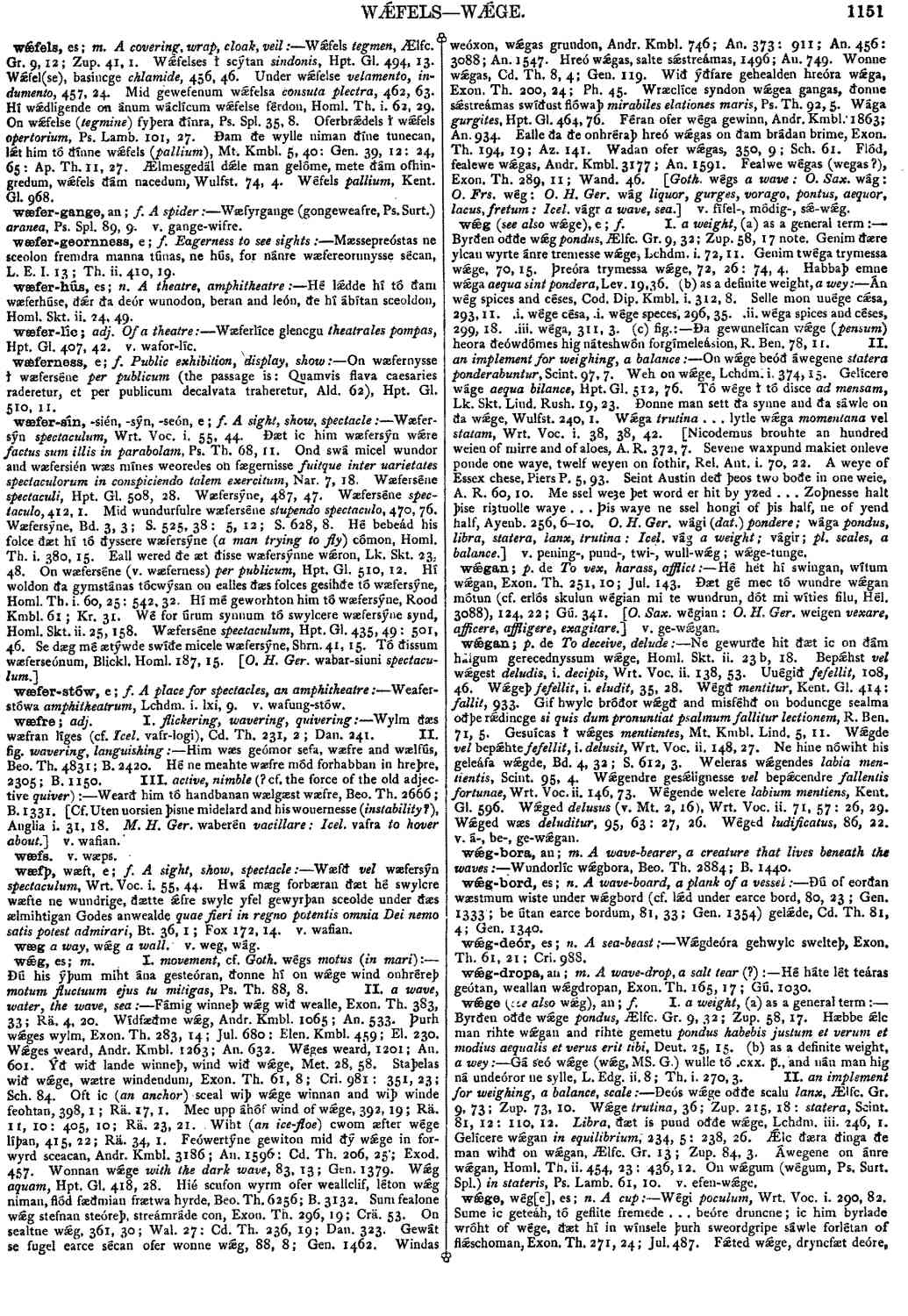wǽgan
- verb [ weak ]
-
Ne gewurðe hit ðæt ic on dam hálgum gerecednyssum wǽge,
- Homl. Skt. ii. 23 b, 18.
-
Bepǽhst
vel wǽgest deludis, i. decipis,
- Wrt. Voc. ii. 138, 53.
-
Uuégið
fefellit,
- 108, 46.
-
Wǽgeþ
fefellit, i. eludit,
- 35, 28.
-
Wégð mentitur, Kent. Gl. 414:
fallit,
933. -
Gif hwylc bróðor wǽgð and misféhð on boduncge sealma oðþe rǽdincge
si quis dum pronuntiat psalmum fallitur lectionem,
- R. Ben. 71, 5.
-
Gesuicas ł wǽges
mentientes,
- Mt. Kmbl. Lind. 5, 11.
-
Wǽgde
vel bepǽhte fefellit, i. delusit,
- Wrt. Voc. ii. 148, 27.
-
Ne hine nówiht his geleáfa wǽgde,
- Bd. 4, 32; S. 612, 3.
-
Weleras wǽgendes
labia mentientis,
- Scint. 95, 4.
-
Wǽgendre gesǽlignesse vel bepǽcendre
fallentis fortunae,
- Wrt. Voc. ii. 146, 73.
-
Wégende welere
labium mentiens,
- Kent. Gl. 596.
-
Wǽged
delusus
(v.- Mt. 2, 16), Wrt. Voc. ii. 71, 57: 26, 29.
-
Wǽged wæs
deluditur,
- 95, 63: 27, 26.
-
Wéged
ludificatus,
- 86, 22.
Bosworth, Joseph. “wǽgan.” In An Anglo-Saxon Dictionary Online, edited by Thomas Northcote Toller, Christ Sean, and Ondřej Tichy. Prague: Faculty of Arts, Charles University, 2014. https://bosworthtoller.com/34255.
Checked: 0